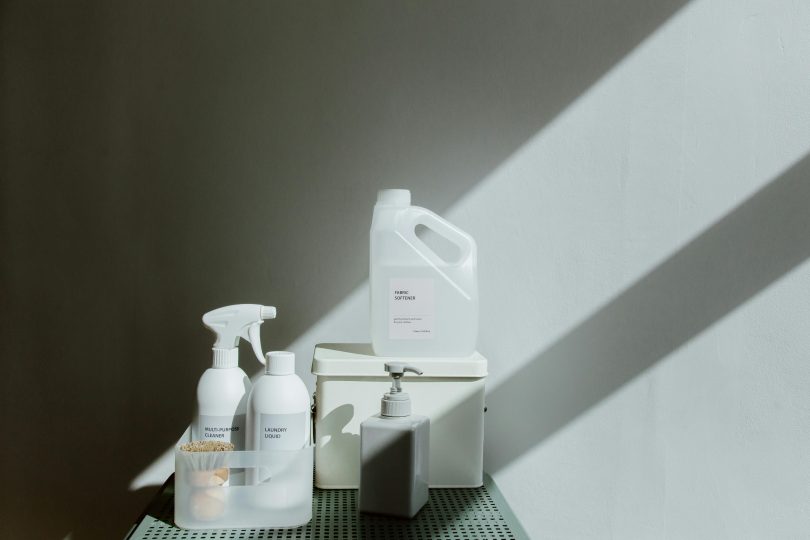Are you tired of breathing in toxic fumes while trying to maintain a clean home? With the increasing awareness of indoor air quality, it’s time to make a change.
Enter eco-friendly cleaning products, the game-changer for promoting better indoor air quality. But how exactly do these products work, and why should you consider making the switch?
Let’s explore the benefits, the natural ingredients that make them effective, and some DIY recipes that will leave your home sparkling clean.
Get ready to discover a whole new world of cleaning that not only benefits your health but also the environment.
The Importance of Indoor Air Quality
Indoor air quality is essential for your health and well-being. The air you breathe inside your home can have a significant impact on your overall health. Poor indoor air quality can cause a range of health issues such as allergies, asthma, respiratory problems, and even more serious conditions. It’s important to understand the importance of maintaining good indoor air quality and taking steps to improve it.
One of the main reasons why indoor air quality is so crucial is because we spend a significant amount of time indoors. On average, people spend about 90% of their time inside, whether it’s at home, work, or other indoor environments. This means that the air we breathe indoors has a direct impact on our health.
Indoor air pollution can come from various sources, such as chemicals from cleaning products, tobacco smoke, mold, and dust mites. These pollutants can accumulate in the air and cause respiratory irritation, allergies, and other health problems. By improving indoor air quality, you can reduce your risk of developing these issues and create a healthier living environment for yourself and your family.
There are several ways you can improve indoor air quality. One of the most effective methods is to use eco-friendly cleaning products. Conventional cleaning products often contain harsh chemicals that can release volatile organic compounds (VOCs) into the air, contributing to indoor air pollution. Switching to eco-friendly alternatives can help reduce the amount of harmful chemicals in your home and improve the air quality.
Additionally, it’s important to regularly clean and maintain your home, including dusting, vacuuming, and addressing any moisture issues to prevent the growth of mold and the accumulation of dust mites.
Harmful Chemicals in Traditional Cleaning Products
To better understand the impact of indoor air quality on your health, it’s important to examine the harmful chemicals found in traditional cleaning products.
Many conventional cleaning products contain a wide range of toxic chemicals that can adversely affect your indoor air quality.
One of the most common harmful chemicals found in traditional cleaning products is chlorine bleach. Bleach releases chlorine gas when combined with other chemicals, which can irritate your respiratory system and lead to respiratory problems.
Another harmful chemical commonly found in cleaning products is ammonia. Ammonia can cause eye, nose, and throat irritation, as well as respiratory issues when inhaled.
Additionally, many cleaning products contain volatile organic compounds (VOCs) such as formaldehyde and benzene. These VOCs can contribute to indoor air pollution and may cause headaches, dizziness, and even long-term health problems.
Lastly, synthetic fragrances used in cleaning products may contain phthalates, which are known endocrine disruptors and can have harmful effects on your hormonal system.
Benefits of Using Eco-Friendly Cleaning Products
Using eco-friendly cleaning products offers numerous benefits for both your health and the environment. Firstly, these products are made from natural and non-toxic ingredients, which means they’re safer for you and your family. Traditional cleaning products often contain harsh chemicals that can irritate the skin, eyes, and respiratory system. With eco-friendly alternatives, you can avoid these health risks and create a healthier living environment.
Secondly, eco-friendly cleaning products are biodegradable and don’t contribute to water and soil pollution. Traditional cleaning products, on the other hand, often contain chemicals that can contaminate water sources and harm aquatic life. By choosing eco-friendly options, you’re helping to protect our ecosystems and preserve the planet for future generations.
Additionally, using eco-friendly cleaning products can also reduce indoor air pollution. Traditional cleaning products release volatile organic compounds (VOCs) into the air, which can lead to respiratory issues and worsen allergies and asthma. Eco-friendly alternatives, on the other hand, are free from these harmful chemicals, ensuring that the air you breathe indoors is cleaner and healthier.
Lastly, eco-friendly cleaning products are often cruelty-free and not tested on animals. By opting for these products, you can contribute to the ethical treatment of animals and support companies that prioritize sustainability and compassion.
Natural Ingredients for Effective Cleaning
One effective way to clean your home is by using natural ingredients. Natural ingredients aren’t only safe for your health but also for the environment. They’re free from harsh chemicals and toxins that can cause respiratory problems and allergies. By using natural ingredients, you can ensure that your home is clean and free from harmful substances.
One natural ingredient that’s effective for cleaning is vinegar. Vinegar is a powerful disinfectant and can kill bacteria and germs on surfaces. It’s also great for removing stains and odors. Simply mix vinegar with water and use it as a cleaning solution for your countertops, floors, and bathroom fixtures.
Another natural ingredient that’s commonly used for cleaning is baking soda. Baking soda is a versatile cleaner that can be used for various purposes. It can remove stains, deodorize, and act as a gentle scrubber. You can sprinkle baking soda on carpets and upholstery to remove odors, or mix it with water to create a paste for cleaning surfaces.
Lemon juice is also a popular natural ingredient for cleaning. It has natural antibacterial properties and can help remove grease and grime. Lemon juice can be used to clean cutting boards, countertops, and stainless steel appliances. Mix lemon juice with water and use it as a natural cleaning solution.
DIY Eco-Friendly Cleaning Recipes
You can easily make your own eco-friendly cleaning products at home. Not only are these DIY recipes cost-effective, but they also help reduce the use of harmful chemicals in your living space.
One simple yet effective recipe is a homemade all-purpose cleaner. To make this, mix equal parts of water and white vinegar in a spray bottle. This solution can be used to clean countertops, floors, and even windows.
Another handy recipe is a natural glass cleaner. Combine one part water, one part rubbing alcohol, and a few drops of lemon essential oil in a spray bottle. This mixture will leave your windows and mirrors sparkling clean without any streaks.
For a natural scrub cleaner, mix baking soda and water to form a paste. This can be used to scrub away stubborn stains and grime in the kitchen and bathroom.
Lastly, for a fresh and fragrant air freshener, simmer water, citrus peels, and a few cloves on the stove. The aromatic steam will fill your home with a delightful scent.
With these DIY eco-friendly cleaning recipes, you can maintain a clean and healthy living environment while reducing your impact on the environment.
Choosing the Right Eco-Friendly Cleaning Products
To ensure a truly eco-friendly cleaning routine, it’s important to carefully select the right cleaning products for your home. With so many options available in the market, it can be overwhelming to make the right choice. However, by considering a few key factors, you can easily identify the best eco-friendly cleaning products for your needs.
Firstly, it’s crucial to look for products that are certified as environmentally friendly. Labels such as ‘Green Seal’ or ‘EcoLogo’ indicate that the product has undergone rigorous testing and meets specific environmental standards. These certifications ensure that the product is free from harmful chemicals and has minimal impact on the environment.
Secondly, opt for products that are biodegradable and made from natural ingredients. Avoid harsh chemicals like ammonia, bleach, and phosphates, as they can’t only harm the environment but also contribute to indoor air pollution. Instead, choose cleaning products that are plant-based, derived from renewable resources, and are non-toxic.
Furthermore, consider the packaging of the cleaning products. Look for options that use minimal packaging or those made from recycled materials. This helps reduce waste and lowers the carbon footprint associated with the product.
Lastly, read product labels and research the brand’s commitment to sustainability. Look for companies that prioritize transparency and disclose all the ingredients used in their products. Avoid brands that use greenwashing tactics and instead choose those that are genuinely committed to creating eco-friendly cleaning products.
Eco-Friendly Cleaning Tips for Different Areas of Your Home
Keeping your home clean and eco-friendly is essential for maintaining a healthy living environment. However, it’s important to note that different areas of your home require different cleaning techniques and products.
To help you maintain an eco-friendly cleaning routine throughout your entire home, here are some tips for different areas.
In the kitchen, start by using natural and non-toxic cleaners to wipe down countertops, stovetops, and appliances. Baking soda and vinegar can be effective for removing stains and odors.
When it comes to the bathroom, opt for eco-friendly toilet bowl cleaners and shower sprays. You can also use a mixture of lemon juice and baking soda to tackle tough soap scum.
For your floors, consider using a steam mop or microfiber mop instead of traditional chemical-based cleaners. These options aren’t only more eco-friendly but also more effective at removing dirt and grime.
In the bedroom, regularly vacuum and rotate your mattress to reduce allergens and dust mites. Use natural or organic bedding materials to further promote a healthy sleep environment.
Lastly, don’t forget about the outdoor areas of your home. Use natural pesticides and herbicides in your garden to minimize harm to the environment and your health. Additionally, consider using a rain barrel to collect rainwater for watering plants, reducing water waste.
Maintaining Clean and Fresh Indoor Air
For a healthier living environment, maintaining clean and fresh indoor air is essential. Indoor air quality can have a significant impact on your health and well-being. Poor indoor air quality can lead to respiratory issues, allergies, and other health problems.
To ensure that you have clean and fresh indoor air, there are several steps you can take.
Firstly, make sure to regularly clean and vacuum your home. Dust, allergens, and other pollutants can accumulate on surfaces and in carpets, contributing to poor indoor air quality. By regularly cleaning and vacuuming, you can remove these pollutants and improve the air quality in your home.
Additionally, it’s important to properly ventilate your living space. Open windows and doors whenever possible to allow fresh air to circulate. You can also use exhaust fans in kitchens and bathrooms to remove pollutants and moisture from the air. Proper ventilation helps to prevent the buildup of indoor air pollutants and keeps the air in your home fresh and clean.
Furthermore, consider using air purifiers and indoor plants to improve indoor air quality. Air purifiers can help remove pollutants from the air, while indoor plants can naturally filter and purify the air. Both options are effective in reducing indoor air pollutants and creating a healthier living environment.
Making a Positive Impact on the Environment
Regularly maintaining clean and fresh indoor air not only benefits your health, but it also allows you to make a positive impact on the environment. By using eco-friendly cleaning products, you can contribute to reducing air pollution, conserving water, and minimizing waste.
Traditional cleaning products often contain harmful chemicals that can be released into the air, contributing to indoor air pollution and negatively impacting your health. Switching to eco-friendly alternatives helps to decrease the release of these harmful substances, leading to cleaner and healthier indoor air.
In addition to reducing air pollution, eco-friendly cleaning products also contribute to conserving water. Many conventional cleaning products require large amounts of water for dilution or rinsing, leading to wastage of this precious resource. Eco-friendly products are designed to be more concentrated, requiring less water for dilution, and often don’t require rinsing at all. By using these products, you can help conserve water and contribute to the sustainable management of this vital natural resource.
Furthermore, eco-friendly cleaning products help minimize waste. Traditional cleaning products often come in single-use plastic containers that end up in landfills or oceans, contributing to environmental pollution. On the other hand, eco-friendly products are often packaged in recyclable or biodegradable materials, reducing their impact on the environment. By choosing eco-friendly cleaning products, you can actively participate in waste reduction efforts and promote a more sustainable future.







